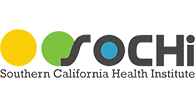Learn about the impact of technology on medical billing and coding and how technology impacts billing processes, from automation to improved communication. Get up-to-date information from SOCHI experts.
Technology is taking over the world, and the healthcare sector is no different. Over the years, technology has improved medical billing and coding procedures, making them faster and more efficient. Technology implementation has seen unprecedented growth, with innovative applications and software implementing new ways of completing billing and coding processes. However, with these recent advancements come various challenges. This blog post will explore the technological advancements and challenges in the medical billing and coding industry.
The Impact of Technology on Medical Billing and Coding: Advancements and Challenges
Learn the impact of technology on medical billing and coding, from streamlining manual processes to new revenue cycle management systems.
1. Enhanced Productivity:
Technological advancements have continued to improve productivity in the medical billing and coding sector. The introduction of software and applications has made collecting, processing, and analyzing data easier, enabling medical billing and coding professionals to improve their productivity.
Programs such as Practice Management Systems, Electronic Health Records Systems, and Medical Coding Software have transformed the sector in many ways. For example, implementing electronic health records has enabled healthcare providers to access patient healthcare information quickly. Electronic health records document health history, medical diagnosis, and treatment options.
2. Improved Efficiency in Billing Processes:
Technology has modernized billing by facilitating communication between healthcare providers and insurance companies. Contract management software, revenue cycle management solutions, telemedicine, and machine learning algorithms assist in streamlining the billing process.
Online bill-pay services make payment options easier for patients. With these technological advancements, medical billing and coding specialists can improve accuracy, avoid errors, and complete tasks promptly.
3. Compliance with Healthcare Regulations:
Medical billing and coding specialists must adhere to stringent medical billing and compliance standards to prevent fraud or abuse in medical settings. The Health Insurance Portability and Accountability Act (HIPAA) is a regulatory compliance act that medical billing and coding professionals must abide by in their work process. HIPAA ensures privacy laws and regulations are in place to safeguard confidential and sensitive medical information.
4. Challenges with Technological Advancements:
Even though technology has seen tremendous progress in improving the medical billing and coding sector, a few challenges have surfaced. Implementing technological advancements has been slow, and the sheer cost of acquiring up-to-date technology can be a deterrent.
Not all healthcare providers have access to essential technology, and training is required since adopting new technologies comes with a learning curve. Furthermore, the rapid growth in technology could lead to fewer jobs in the future, leading to an increase in unemployment due to technological advancements replacing human labor.
Reasons You Should Become a Medical Biller and Coder
With the healthcare industry continuing to grow, it’s no surprise that medical billing and coding careers are in high demand. But beyond the current job market’s potential, there are plenty of reasons why you should consider a career in medical billing. Not only do these professionals serve an essential role in the healthcare industry, but they also enjoy a strong sense of job security and satisfaction.
With the opportunity to work remotely and flexible hours, medical billers and coders often find a healthy work-life balance. The medical billing field is constantly evolving, making it an exciting and dynamic career path. So, if you’re looking for a fulfilling career in a growing industry, consider becoming a medical biller and coder.
Conclusion:
In conclusion, technology has transformed the medical billing and coding industry, improving productivity, efficiency, and compliance. It has facilitated faster communication between healthcare providers and insurance companies, ensuring bills and claims are processed accurately and timely. However, even with all of these advancements, healthcare professionals must be mindful of the drawbacks of these technological advancements.
Healthcare providers will have to generate a strategy to manage technological advancements with the considerations of the cost, training, and potential loss of jobs. The medical billing and coding profession is promising, and demand for professionals is projected to increase. As a result, medical billing professionals must keep up with technological advancements and equip themselves with the necessary skills to work in a tech-driven industry.





